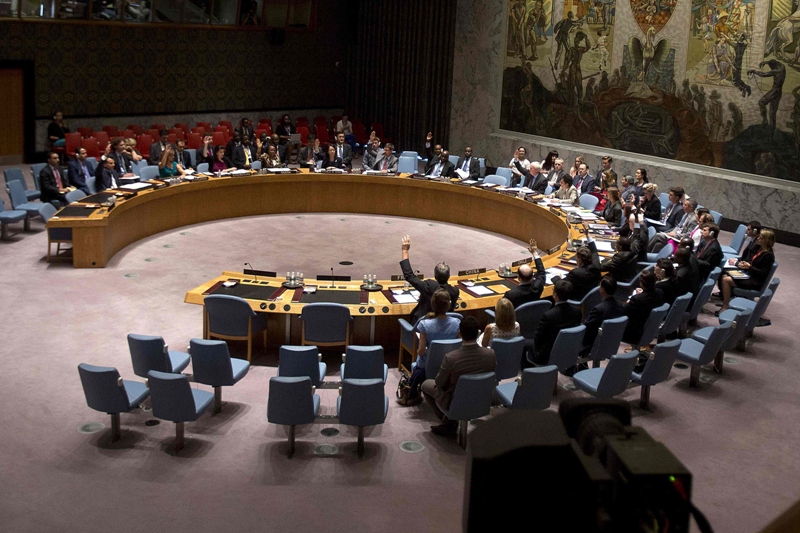
The 15-member council unanimously adopted a resolution that aims to weaken the Islamic State - an al Qaeda splinter group that has seized swaths of territory in Iraq and Syria and declared a caliphate - and al Qaeda's Syrian wing, Nusra Front.
Islamic State has long been blacklisted by the Security Council, while Nusra Front was added earlier this year. Both groups are designated under the UN al Qaeda sanctions regime.
Friday's resolution named six people who will be subject to an international travel ban, asset freeze and arms embargo, including Islamic State spokesperson Abu Muhammad al-Adnani, an Iraqi described by UN experts as one of the group's "most influential emirs" and close to its leader Abu Bakr al Baghdadi.
The Islamic State's swift and brutal push to the borders of Iraq's autonomous ethnic Kurdish region and toward Baghdad has sparked the first US air strikes in Iraq since the withdrawal of American troops in 2011.
The Security Council resolution "deplores and condemns in the strongest terms the terrorist acts of ISIL (Islamic State) and its violent extremist ideology, and its continued gross, systematic and widespread abuses of human rights and violations of international humanitarian law."
It also blacklisted Said Arif, a former Algerian army officer who escaped house arrest in France in 2013 and joined Nusra Front in Syria, and Abdul Mohsen Abdallah Ibrahim al-Charekh of Saudi Arabia, dubbed "a leading terrorist internet propagandist" who heads Nusra Front in Syria's Latakia district.
Hamid Hamad Hamid al-Ali and Hajjaj bin Fahd al-Ajmi, both from Kuwait, were sanctioned for allegedly providing financial support to Nusra Front. Ajmi's fundraising includes at least one Twitter campaign, according UN experts. Abdelrahman Mouhamad Zafir al Dabidi al Jahani of Saudi Arabia was named because he runs Nusra Front's foreign fighter networks.
Britain drafted the resolution and initially aimed to adopt the text by the end of August, but accelerated its plan after a surge by Islamic State, which poses the biggest threat to Iraq since Saddam Hussein was toppled by a US-led invasion in 2003.
"They cannot survive independent of the outside world and if that support from the outside world can been choked off then this organization will not have the resources to continue its activities," Britain's U.N. Ambassador Mark Lyall Grant, council president this month, after the resolution was adopted.
"That is partly the aim of this resolution," he said. The resolution condemns the recruitment of foreign fighters and expresses readiness to blacklist people financing or facilitating travel of foreign fighters. It expresses concern that revenue generated from oilfields captured by both groups is being used to organize attacks.
Islamic State militants are selling oil from oilfields in Iraq and refineries they control to local communities and smugglers, augmenting their existing ample finances, US intelligence officials said on Thursday.
The resolution condemns any direct or indirect trade with Islamic State or Nusra Front and warns such moves could lead to sanctions. It asks UN experts - charged with monitoring violations of the council's al Qaeda sanctions regime - to report in 90 days on the threat posed by Islamic State and Nusra Front, and on details of their recruitment and funding.
The resolution is under Chapter 7 of the UN Charter, which makes it legally binding for U.N. member states and gives the council authority to enforce decisions with economic sanctions or force. However, it does not mandate military force to tackle the insurgents.
COMMENTS (1)
Comments are moderated and generally will be posted if they are on-topic and not abusive.
For more information, please see our Comments FAQ













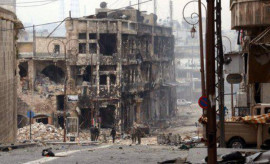

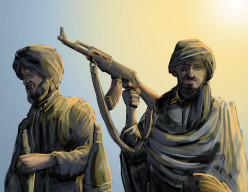
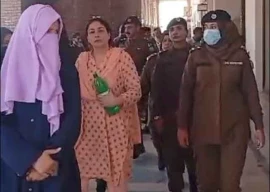
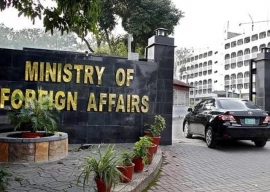
























ISIS finances come from illegal oil sale and the loot/plunder is a WRONG assumption to save those Arab countries who are US allies. Didn't we see the US approving half a billion dollar for weapons for the terrorists fighting in Syria, ultimately this will come in the hands of ISIS.